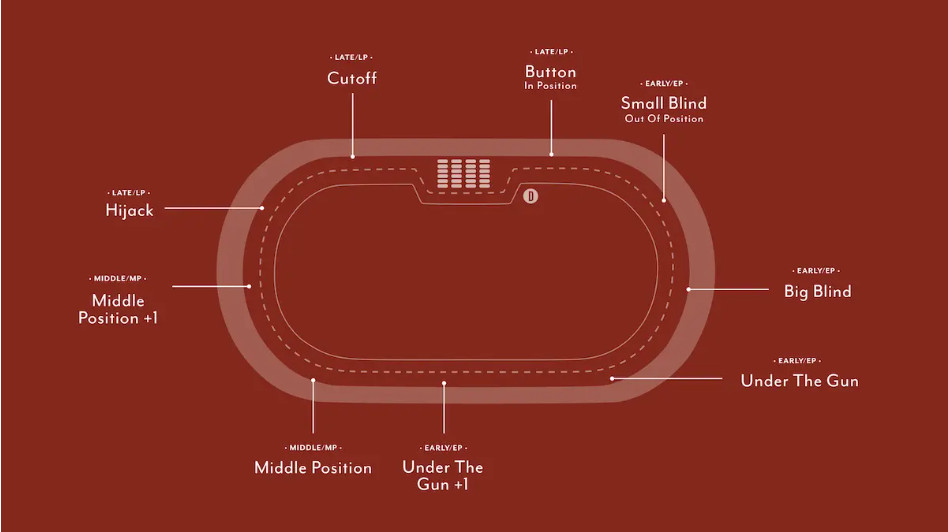Poker Positions Explained: Learn the Importance of Position in Poker
How poker table positions can help your game play |
|---|
|
If you're relatively new to the game of Texas Hold'em Poker, you may not be aware of the extent to which where you are sitting can have an effect on how a given hand progresses. The fact is, your position in the table can give you a critical strategic advantage, if you know how to play it correctly.
Understanding poker table positionsLet's assume that you are working with the standard tournament poker table that seats nine players (not counting the dealer, obviously, if it's a real table and not an online one). Let's take a look at the following chart, the first three seats are referred to as early positions. Seats four, five and six are called the middle positions, and the dealer, the small blind and the big blind are called late positions.
Now obviously, after every hand the dealer button moves on one position, and the early, middle and late positions change. So, I am not implying that by sitting in a particular chair there is an advantage to be had. Instead I'm saying that, if you are aware of the power of position, you can use it to your advantage wherever you are sitting. On the face of it, the most obviously beneficial position to be playing from is the dealer button. This is because you get to act last in every situation, because the person to the dealers left always acts first. That's always the blinds, who are forced to bet regardless of what they're holding. From there the street moves round the table until it ends up at the dealer button. If you are sitting on the dealer button, you get to watch everyone act first, and then make your move based on what you have seen. It is a far more informed position than, say, having to act from early position. For example, if everyone ahead of you has folded, then from the dealer button it is advisable to make a big raise. In all likelihood, you will succeed in snatching the blinds. However, if the number of people have already called and you don't have a super strong hand, you can bow out gracefully rather than being tempted into a bruising situation. Of course, there's a lot more to it than just the splendour of being on the dealer button. Your position also affects how you play different hands.
|


